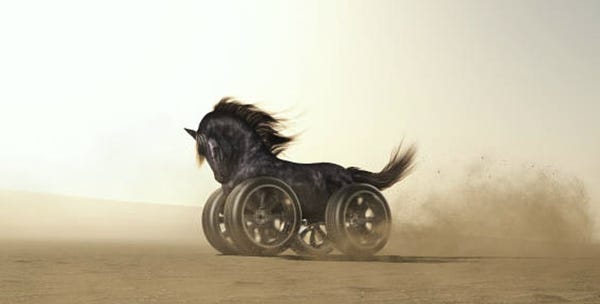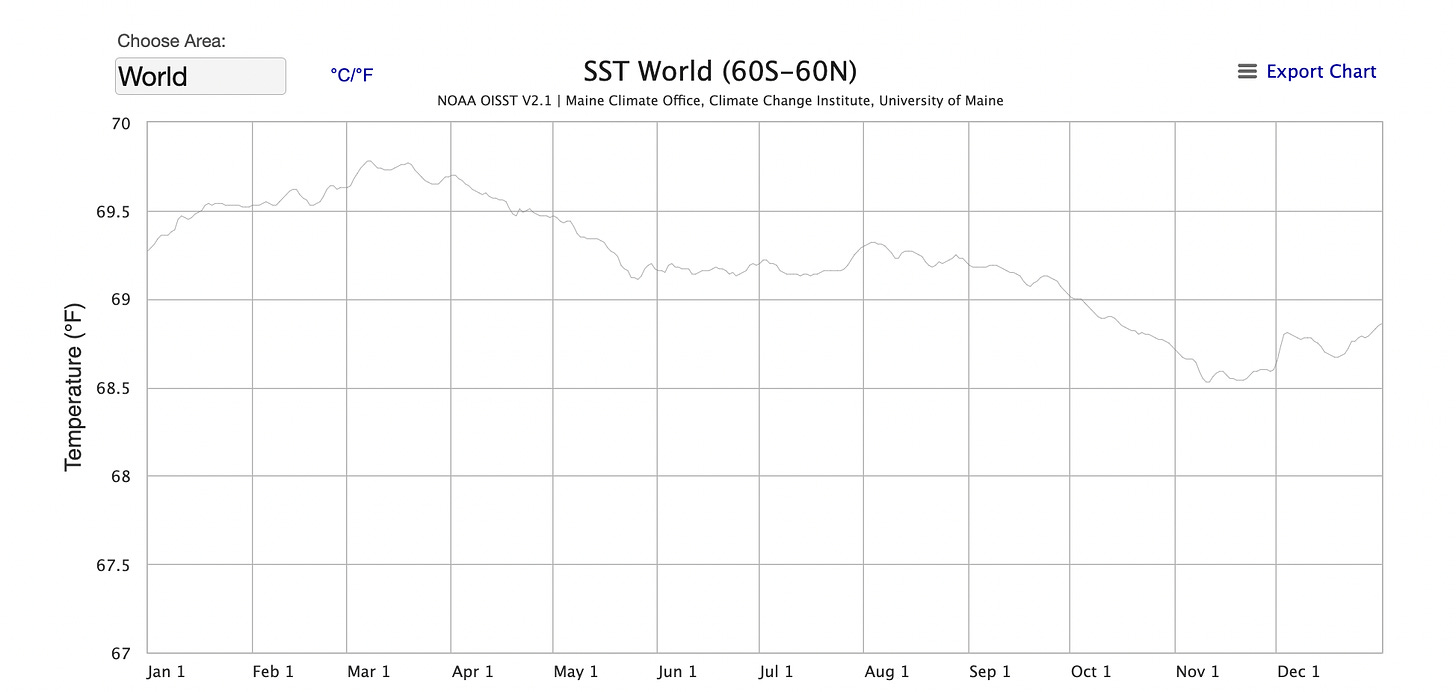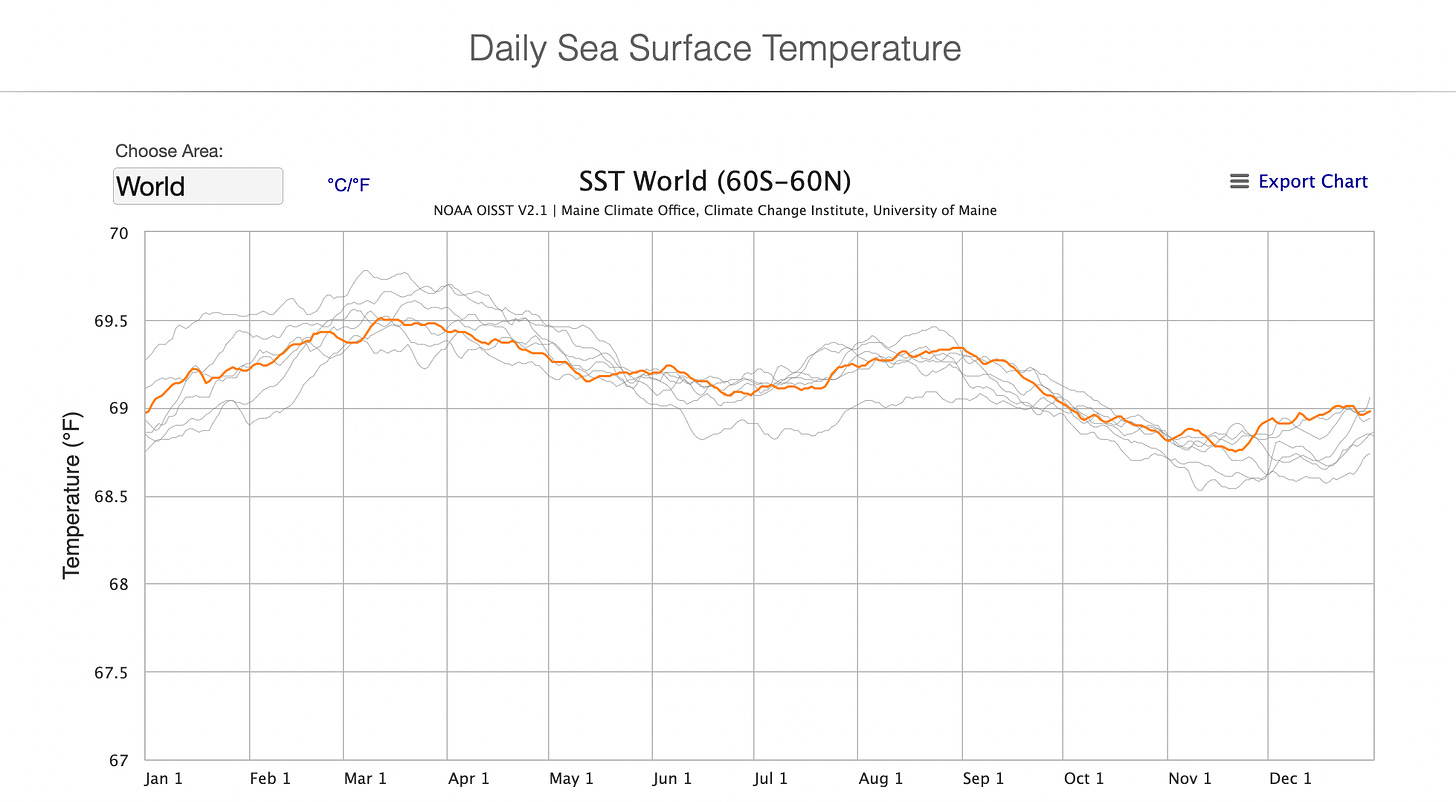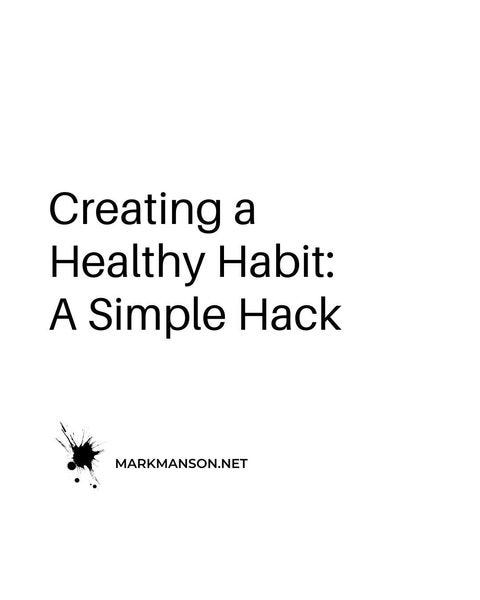Why We Suck At Understanding Climate Change
Plus, How To Keep Making Money In A Fast-Changing World
In This Edition of The Dandelion Report…
🔥 The Hot Take
Why We Suck At Understanding (And Acting) On Climate Change
✏️ Some Tactical Advice
How To Keep Making Money In A Fast-Changing World
❝ Quotes + Biteables
Surrender to What Is, Not What Could Be
🔥 Hot Take
Section: The Natural World
Title: Why we suck at understanding (and acting) on climate change.
Let’s be honest: Scientists are terrible marketers. And someone really needs to take on the role of being the CMO for planet Earth.
They have no idea how to position a message so it is understood. They spout statistics and numbers and it just goes over the average person’s head, and then the government, big corp, and other players (with selfish interests) massage the data to serve themselves. It’s no wonder we’ve been so slow to act.
The problem of climate change is so big and consequences are anticipated so far in the future, even if scientists were good at telling stories and delivering a message, and big government and business wasn’t interfering, we’d still have an issue.
Because there are several psychological biases in play when we start to wrap our heads around overshoot and collapse of the Earth:
#1 Optimistic Bias: The idea that humans perceive themselves at “less risk” than other people. We naturally see ourselves in a better position than others.
Climate change will impact poorer nations where it’s hot or near the sea, but I’m upper class and living in Connecticut so I’m fine.
#2 Unclear Cultural Cues: There’s so much disagreement and opinion being thrown around, it’s hard to know who’s right. And oftentimes the viral and click-baity type articles make more news than the truth.
I can find 2 people denying climate change for every 1 scientist screaming from the rooftops. Who knows if it’s even true?
#3 Confirmation Bias: Our tendency to look for evidence that confirms a hypothesis or belief we already have. Notice the underlying assumption in the search example below.
I just did research on “why climate change won’t matter in 100 years” and read so many things confirming this is just a natural ecological cycle and the Earth will find equilibrium again.
#4 Exposure Therapy: We get used to things that are risky because after time, we normalize it. We also don’t notice patterns of intensity or frequency increasing. And because weather is so localized, you often don’t care if there’s a problem somewhere halfway around the globe.
Hurricanes and tornadoes, floods and heatwaves are happening every day now. It’s just the weather. I’ve come to expect it.
#5 Exponential Growth Gap: Our brains think in linear terms. Slow and steady increase. Exponential growth is like a hockey stick on a graph. It stays reasonably stable, growing slowly, and then all of a sudden, the numbers explode.
The climate warnings in 1970’s about the 2000’s didn’t fully come to pass. Which means, the climate warnings now probably won’t impact the future either.

We also suck at anticipating future consequences that at first appear unrelated to the problem at hand.
With climate change, it’s so hard for our brains to understand how different parts of society will be impacted by what is perceived to be small changes in temperature (only 2 degrees of warming), millimeters of sea level rise (3 meters by 2100), and the extinction of species in our oceans and on land (didn’t like those pesky bugs anyway).
Take this example… how the iPhone hurt the chewing gum market.1 Would anyone have guessed?
“In the decade from 2007, American chewing gum sales fell 15 per cent – just as 220 million American adults bought their first smartphones. This was no coincidence. When people got into a shop's queue, they would once have spent the time browsing the goodies for sale at the counter – and gum was the obvious choice. Suddenly, they were spending that time playing with their phones. So gum sales plummeted. Nobody saw that one coming. Predicting the impact of the iPhone on grocery store gum sales would have needed a modern-day Nostradamus.”
-The Wired | The Exponential Age Will Transform Economics Forever
Bottom line, if it’s hard to picture, it’s easier to ignore.2
The following graph is a picture of the daily sea surface temperature in 2016. One of the hottest years on record (an El Niño year which means things are generally warmer than neutral or La Niña years), you can see the temperature reached a high of about 69.8F in March and then slowly sloped down from there.
Now, let’s add in all the years following - 2017, 18, 19, 2020, 2021, and 2022 (featured in orange). You’ll notice there’s a general pattern following right?
Starting September 2020, 2021, and 2022 we’ve been in a La Niña cycle, which means - generally cooler temperatures.
In other words, during a time when we should see a dip in temps, the average temperature followed generally the same path as the warmest year ever back in 2016.
Now, let’s add in data starting as far back as 1981.
The picture is starting to make sense now.
We’re at the TOP of the temperature records for sea surface temps.
2016 was a record year, and the following La Niña cycle did nothing to budge the pattern in the last three years.
Ok, one more data point.
Let’s add 2023.
Here’s another important point. We are NOT yet in an El Niño cycle. Which means, what does 2024 hold for us and sea surface temps when it’s anticipated that El Niño will be in full swing in March?
The numbers are clear.
The oceans are heating up.
Have you ever had a child that wanted a fish and an aquarium?
You should try it sometime…. if you want to hate your life.
Trying to keep a few fish alive in a 55 gallon tank is not easy. You think it’s just some tap water, pebbles, and fish food, until you realize you’re trying to balance this tiny ecosystem and even the slightest adjustment in water temp or bacteria, kills off your fish and next thing you know, you’re doing a toilet bowl funeral for Goldie.
Ecosystems are delicate. They work on balance. And when that balance is off, there is a cascading effect.
One thing goes wrong and then everything goes wrong.
Hockey stick collapse.
It looks like nothing, until it is something. And then it becomes a big uh-oh something.
At the end of the day, in order to actually get large amounts of people to really understand the implications of a warmer ocean (and prepare and act accordingly), it’s not about the why.
It’s finding ways to show people… how will the ocean heating up impact you personally?
It isn’t going to mean as much to share big catastrophic impacts of a warming ocean. The stories need to be distinctly about how it will impact you…in your neighborhood. Look at the difference in impact.
A warming ocean means coral reefs will die. Which means the fish that hang out there will die. The predators that eat those fish will starve, and then die. If we compound the issue with the excess commercial fishing industry - watch Seaspiracy for a big eye-opener there - the oceans' population will be gone soon.
Or…
A community in Texas got hit with an incredible 3 day heat wave in the summer of 2024, where the temperature got so hot that thousands of people without air conditioning died. All labor forces that work outside (landscapers, roofers, construction), stopped working and things in the town came to a screeching halt. The town morgue couldn’t keep up with all the funerals, and shops and other community functions struggled to continue because of the staff shortage.
Which one is more scientific and which one actually leads you to want to do something?
The messages must start small, personalized, and simple.
If you’re going to be a part of the conversation, that is the only way to motivate people to understand and prepare.
And then maybe… just maybe, a few of us will suck a little bit less at understanding climate change.
✏️ Tactical Advice
Section: The Economic World
Title: How To Keep Making Money In A Fast-Changing World
In a changing world, it’s normal to wonder what businesses will go extinct, what new trends will hit, and how it’ll impact your bottom line as a business owner.
Businesses solve problems and in the coming years, problems will only be greater. Here are a few of the industries I see growing in importance.
Health + medical care services
AI engineering + professional "prompters"
Online education
Gig economy work + skills related to this
Immigration
Food + farming
HVAC (air conditioning especially)
Crypto + web 3 markets
Gaming
Mental health services
Aging population issues (retirement living, etc.)
Cyber security + data
Energy
Ecomm + home delivery
Real estate + housing
And...while you can’t always predict the next “boom” in the economy, there are a few skills that EVERY single business needs. Every single one.
Marketing (funnels, advertising, social media, branding)
Sales (in person, virtual, copywriting)
Leadership
Communication
Finance
Operations
The best investment is in yourself, your skills, and your ability to increase your value in any marketplace by simply solving pressing, annoying, difficult problems.

If you’re trying to build a business that will sustain you, think small first. Meaning, find a niche you can really help.
Go after real, immediate problems you can solve.
What most people do is come up with a cool idea and try to market it. Instead, attach yourself to a person with a particular issue, and when I say niche down, I mean slightly more specific than feels comfortable.
In your neighborhood, facebook group, or customer base, who is 1 person with an annoying painful issue that you can fix?


He recommends the following questions to ask your ideal customer:
What’s the hardest part about doing this thing?
When was the last time you encountered this problem?
Why was that hard?
What, if anything, have you done to solve the problem?
What don’t you love about the solutions you’ve tried?
Don’t focus on features (meaning the “stuff” that you will include in the offer), stay focused on their pain and problem.
This is how you build something that will sell.
Don’t theorize or try to anticipate the next big thing. There are so many problems in this world that need solving right now. Fix a problem, make yourself valuable, and the money follows.
❝ Quotes + Biteables
Section: The World Between The Ears
Title: The Surrender To What Is, Vs. What Could Be
“I think less than 10% of people ever surrender to who they really are. They spend their whole lives trying to fulfill a fake and manufactured image. And so, they get trapped in hollow careers and meaningless pursuits where they’re forced to be somebody they’re not — the stuff of a cold and haunting misery.” - David Perell

Trying to figure out how hack a new habit? Mark Manson’s post here was so good!
One last thought before I sign off…
I’m watching as people respond to new tools in the marketplace (AI specifically).
I see the resisters (people who hate change or look for the problems first), curious adopters (those who step in but keep asking questions), and then rabbit holers (people who abandon everything to pursue it).
Rabbit holers are change makers yes, but they also get distracted and burned sometimes. Don’t let me stop you going down the rabbit hole, but just understand the risk and like any good investor, protect your downside.
Resisters struggle. Oftentimes on the tail end of a trend, resisters have a tough time catching up.
I aim to be the curious adopter. I hope you are too!










